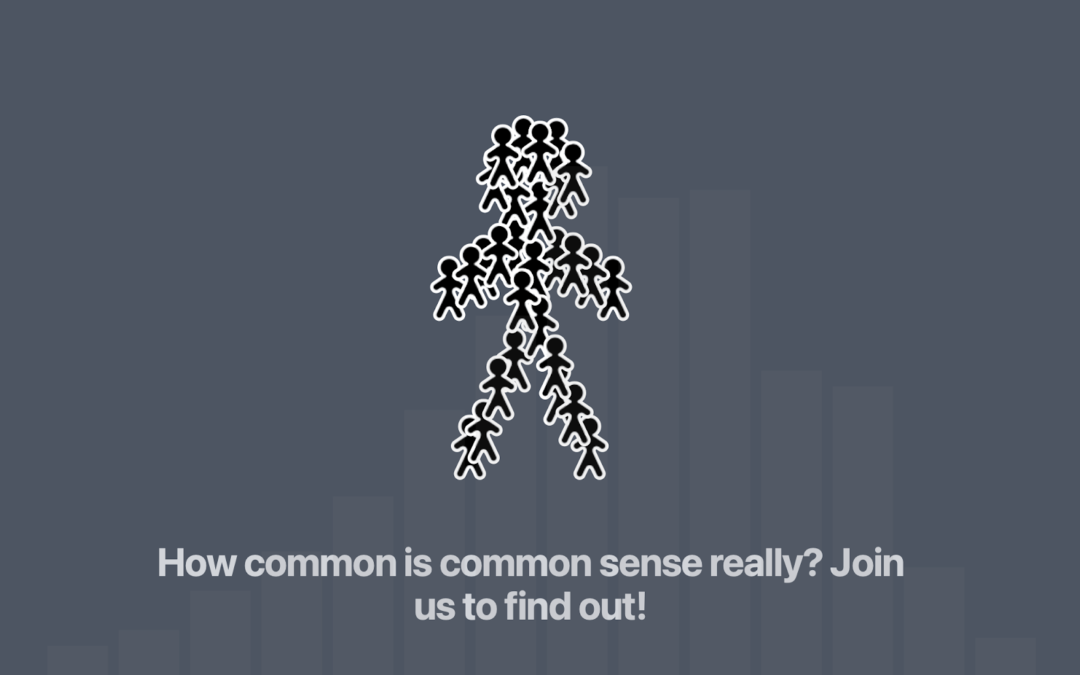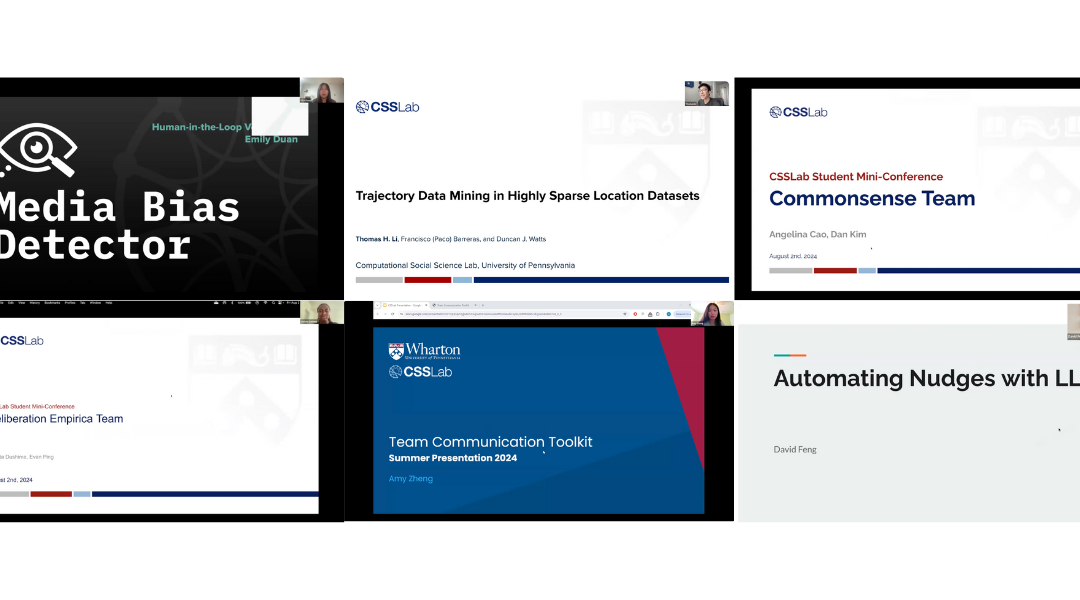
Nov 20, 2024 | Featured, News, PennMAP
A social scientist looks at the portrait of U.S. voters, and voting, in the aftermath of the 2024 presidential election that put Trump into the White House A television showing Democratic presidential nominee, U.S. Vice President Kamala Harris, debating Republican...

Oct 4, 2024 | Common Sense, Featured, News
Most of us believe that we possess common sense; however, we find it challenging to articulate which of our beliefs are commonsensical or how “common” we think they are. Now, the CSSLab invites participants to measure their own level of common sense by taking a survey...

Sep 13, 2024 | Featured, News
On August 2nd, ten undergraduate and Master’s students showcased their research at the third annual Student Research Mini-Conference, which featured presentations from all four major research groups at the Computational Social Science Lab (CSSLab) at Penn: PennMAP,...

Sep 13, 2024 | Featured, Group Dynamics, News
When a Republican and a Democrat sit down to discuss gun control, how is it going to go? Conversations between Republicans and Democrats can be either productive or polarizing and social scientists want to understand what makes conversations between people from...

Sep 7, 2024 | Featured, News
As a computer science major at Penn Engineering, Mahika Calyanakoti ’26 enjoyed her courses in data science, math, and machine learning. So when she decided to pursue an accelerated master’s degree, she chose Penn Engineering’s data science program. Originally...






